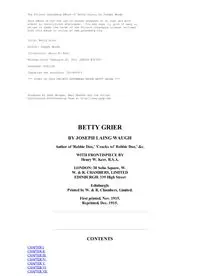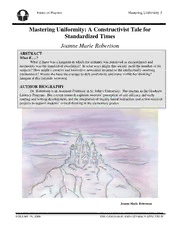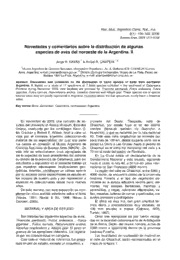
An Introduction to Economic Dynamics: Modelling, Analysis and Simulation PDF
Preview An Introduction to Economic Dynamics: Modelling, Analysis and Simulation
“This book is a welcome addition to the literature on economic dynamics. Its clear writing style and the emphasis on coding using MATLAB® make it a compelling text for introducing undergraduate economics students to stability issues, cycles, and growth. The emphasis on both standard models like the Solow growth model and less standard ones such as the Goodwin growth cycle appeal to a broad spectrum of economists in the profession, and the highly competent authors have put years of experience with the material into a highly accessible textbook. I highly recommend the book to anyone willing to incorporate numerical methods into macroeconomic courses.” Daniele Tavani, Associate Professor, Colorado State University AN INTRODUCTION TO ECONOMIC DYNAMICS An Introduction to Economic Dynamics provides a framework for students to appreciate and understand the basic intuition behind economic models and to experiment with those models using simulation techniques in MATLAB®. This book goes beyond the often-limited scope of other texts on economic models, which have largely focused on elucidating static equilibrium models. Comparative static analysis inhibits students from asking how the equilibrium position is achieved from an initial out-of- equilibrium position and limits their understanding of the dynamics that underlie such analysis. In this textbook, readers are introduced to ten well-established macroeconomic models – including Keynesian multiplier models, Samuelson’s multiplier and Solow’s growth model – and guided through the dynamical systems behind each model. Every chapter begins with an overview of the economic problem which the model is designed to help solve followed by an explanation of the mathematics of the model. Solutions are provided using simulation and visualisation techniques in MATLAB®, which are interwoven organically with the analysis and are introduced in a step-by-step fashion to guide the reader along the way. Appendices provide an introduction to MATLAB® along with all the necessary codes. The book is ideally suited for courses in economic dynamics, macroeconomic modelling and computational economics, as well as for students of finance, mathematics and engineering who are interested in economic models. Srinivas Raghavendra is an Associate Professor in Economics at the Azim Premji University, Bangalore, India and with the Department of Economics at the University of Galway in Ireland. Petri T. Piiroinen is an Associate Professor in Nonlinear Mechanics at Chalmers University of Technology, Göteborg, Sweden. Routledge Advanced Texts in Economics and Finance 32 The Economics of Transition Developing and Reforming Emerging Economies Edited by Ichiro Iwasaki 33 Applied Spatial Statistics and Econometrics Data Analysis in R Edited by Katarzyna Kopczewska 34 Spatial Microeconometrics Giuseppe Arbia, Giuseppe Espa and Diego Giuliani 35 Financial Risk Management and Derivative Instruments Michael Dempsey 36 The Essentials of Machine Learning in Finance and Accounting Edited by Mohammad Zoynul Abedin, M. Kabir Hassan, Petr Hajek and Mohammed Mohi Uddin 37 Financial Economics and Econometrics Nikiforos T. Laopodis 38 Applied Welfare Economics, Second Edition Cost-Benefit Analysis of Projects and Policies Massimo Florio and Chiara Pancotti 39 An Introduction to Economic Dynamics Modelling, Analysis and Simulation Srinivas Raghavendra and Petri T. Piiroinen For more information about this series, please visit: www.routledge.com/ Routledge-Advanced-Texts-in-Economics-and-Finance/book-series/SE0757 AN INTRODUCTION TO ECONOMIC DYNAMICS Modelling, Analysis and Simulation S R I N I V A S R A G H A V E N D R A A N D P E T R I T . P I I R O I N E N Designed cover image: © Getty Images / Sono Creative First published 2023 by Routledge 4 Park Square, Milton Park, Abingdon, Oxon OX14 4RN and by Routledge 605 Third Avenue, New York, NY 10158 Routledge is an imprint of the Taylor & Francis Group, an informa business © 2023 Srinivas Raghavendra and Petri T. Piiroinen The right of Srinivas Raghavendra and Petri T. Piiroinen to be identified as authors of this work has been asserted in accordance with sections 77 and 78 of the Copyright, Designs and Patents Act 1988. All rights reserved. No part of this book may be reprinted or reproduced or utilised in any form or by any electronic, mechanical, or other means, now known or hereafter invented, including photocopying and recording, or in any information storage or retrieval system, without permission in writing from the publishers. Trademark notice: Product or corporate names may be trademarks or registered trademarks, and are used only for identification and explanation without intent to infringe. All permissions have been sought to the best of our knowledge where necessary. For MATLAB and Simulink product information, please contact: The MathWorks, Inc. 3 Apple Hill Drive Natick, MA, 01760-2098 USA Tel: 508-647-7000 Fax: 508-647-7001 E-mail: info@mathworks.com British Library Cataloguing-in-Publication Data A catalogue record for this book is available from the British Library ISBN: 978-0-367-34190-9 (hbk) ISBN: 978-0-367-34189-3 (pbk) ISBN: 978-0-429-32440-6 (ebk) DOI: 10.4324/9780429324406 Typeset in Times New Roman by Apex CoVantage, LLC To our parents CONTENTS Preface xiii CHAPTER 1 INTRODUCTION TO ECONOMIC DYNAMICS 1 1.1 A short primer on MATLAB® 5 CHAPTER 2 THE COBWEB MODEL 15 2.1 Economic problem 15 2.2 Modelling 19 2.3 Analysis, simulation and visualisation 21 2.3.1 Cobweb plots 26 2.4 Concluding remarks, extensions and challenges 29 CHAPTER 3 EXPECTATION DYNAMICS IN THE COBWEB MODEL 33 3.1 Economic problem 33 3.2 Modelling 35 3.3 Analysis, simulation and visualisation 36 3.3.1 Cobweb plots 42 3.4 Concluding remarks, extensions and challenges 44 CHAPTER 4 KEYNESIAN MULTIPLIER MODEL 47 4.1 Economic problem 47 4.2 Modelling 50 4.3 Analysis, simulation and visualisation 54 4.4 Concluding remarks, extensions and challenges 57 CHAPTER 5 THE IS/LM MODEL 61 5.1 Economic problem 61 5.2 Modelling 63 5.3 Analysis, simulation and visualisation 67 5.4 Remarks, extensions and challenges 74 IX
The list of books you might like

Credence

Shatter Me Complete Collection (Shatter Me; Destroy Me; Unravel Me; Fracture Me; Ignite Me)

Rich Dad Poor Dad

The Subtle Art of Not Giving a F*ck

Relief Beyond Belief. Silhouette Dieforming in Polymer Clay

TCPS 1267-2549: JOB'S TEARS PRODUCTS
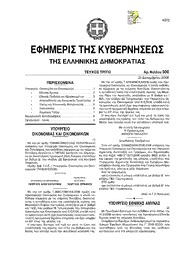
Greek Government Gazette: Part 3, 2006 no. 500
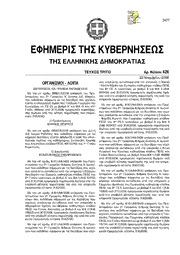
Greek Government Gazette: Part 3, 2006 no. 426

Called The Black Pope by many of his followers, Anton
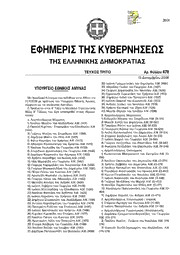
Greek Government Gazette: Part 3, 2006 no. 478
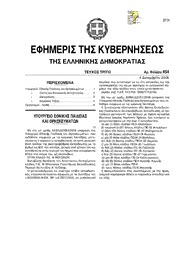
Greek Government Gazette: Part 3, 2006 no. 454
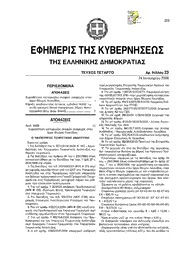
Greek Government Gazette: Part 4, 2006 no. 23
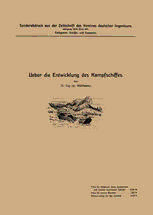
Ueber die Entwicklung des Kampfschiffes

Cabal - Arcade - Manual

Cloth or Textile-2016

Boating - March 2011
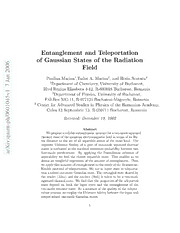
Entanglement and Teleportation of Gaussian States of the Radiation Field

Harry Potter 04 e il calice di fuoco
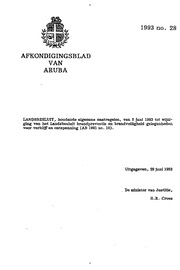
Afkondigingsblad van Aruba 1993 no. 28

Web Mobile & Web Mobile hybride
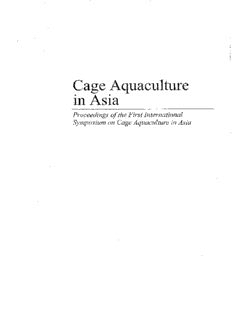
Cage Aquaculture
